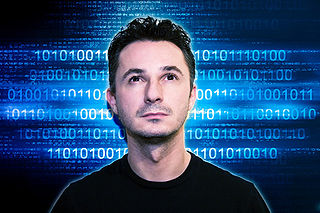A Quote by Klaus Schwab
I am a great enthusiast and early adopter of technology, but sometimes I wonder whether the inexorable integration of technology in our lives could diminish some of our quintessential human capacities, such as compassion and cooperation.
Related Quotes
I am extraordinarily fascinated by the future of technology. We are in the early infancy of technology, and we have an opportunity to guide how technology develops and integrates into our lives. I talk a lot about the 'invisible interface,' or the idea that we can utilize technology without being absorbed into a screen.
Empathy and fellow feeling form the very basis of morality. The capacities for empathy, for feeling responsibility toward others and for reaching out to help them can be stunted or undermined early on, depending on a child's experiences in the home and neighborhood. It becomes too easy to turn our backs on fellow human beings... to have 'compassion fatigue.' Technology, we are learning, is not neutral.
We must ask whether our machine technology makes us proof against all those destructive forces which plagued Roman society and ultimately wrecked Roman civilization. Our reliance - an almost religious reliance - upon the power of science and technology to forever ensure the progress of our society, might blind us to some very real problems which cannot be solved by science and technology.
Anyone who has studied the history of technology knows that technological change is always a Faustian bargain: Technology giveth and technology taketh away, and not always in equal measure. A new technology sometimes creates more than it destroys. Sometimes, it destroys more than it creates. But it is never one-sided. The invention of the printing press is an excellent example. Printing fostered the modern idea of individuality but it destroyed the medieval sense of community and social integration.
Technology can be our best friend, and technology can also be the biggest party pooper of our lives. It interrupts our own story, interrupts our ability to have a thought or a daydream, to imagine something wonderful, because we're too busy bridging the walk from the cafeteria back to the office on the cell phone.





































